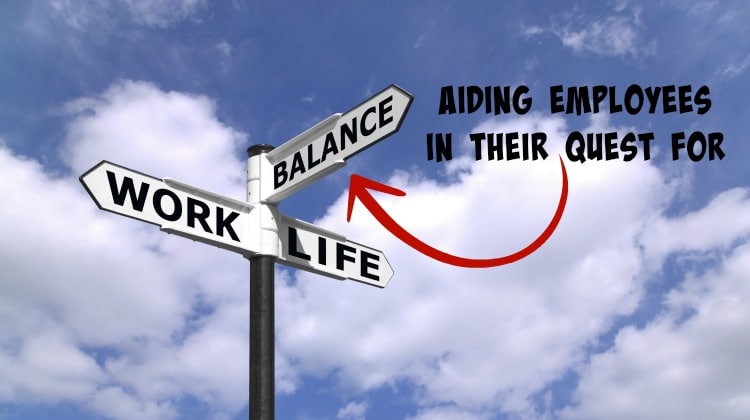
It’s a rare interview with a job applicant that at some point doesn’t include the words “work-life balance” from the candidate.
The reference is usually made when the potential employee is discussing the fact that they want to be dedicated to their work in your firm, but they are also a family person and want time to pursue life separate from their workplace. Usually they say it as if it were a good thing—something that illustrates the wholesomeness of their character and the good overall balance of their personality.
The problem is that work and life really need to be part of the same energy stream if employees are truly to achieve balance in their lives.
The Fallacy of Modern Work-Life Balance
English poet and philosopher, David Whyte takes on this modern separation of what we do to earn a living from what we do to live our lives and exposes its fallacies in the book, The Three Marriages: Re-imaging Work, Self and Relationship.
Whyte contends that the whole concept of work-life balance is disheartening because it implies that what we do to make a living is a series of tasks to be endured so that we may happily live the rests of our lives, doing every other task but work, as the upside of life.
He writes that this idea implies we must exist by allocating half of our waking hours doing something we begrudge while we long for the other half where we may live.
The often discussed work-life balance concept has become to the modern employee a lash with which we punish ourselves, he suggests.
The Human Resources Professional’s Role in Work-Life Balance
In our role as human resources professionals, one of our goals in a disengaged workplace must be to illustrate that the whole idea of work-life balance is overly simplified and unfair to good, productive work that brings more rewards to employees than merely cash to fuel their other life.
We may take inspiration from Whyte who encourages us to stop thinking of work and life as two components that must be balanced against each other and instead to look at ways that the two can become blended. These two sides of our ‘selves’ need to be able to converse with each other, to question each other, and to be emboldened and invigorated by each other, not to be in constant battle.
Work and life are both constant conversations we must have with ourselves, checking frequently to ensure that both are enriching our overall well-being.
Instead of encouraging discussion about the whole concept of work-life balance, we would achieve more, it seems, to focus the conversation on the reality that we are changing, moving personalities seeking meaning and satisfaction in all aspects of our lives. So what if the lines blur?
About the Author
Roz Bahrami is the digital media manager at SkyPrep, a training software company.